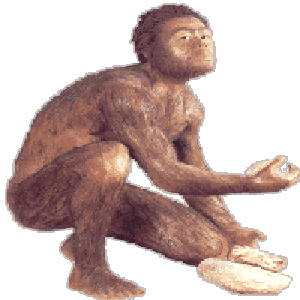History
skills
Historians are like detectives,
they use evidence to find out what happened and why. This is not an easy job.
They must be able to recognise evidence, decide how useful it is and come to
conclusions based on what they have found out.
History is the study
of the past or the narration of the events which have happened among mankind,
including great changes which have affected the political and social condition
of the human race.
Historians work
with different Sources:
- Written sources:
letters, books, maps...
- Images:
photographs, pictures...
- Artifacts:
coins, tools, objects...
- Oral
testimonies.
- Monuments,
buildings, statues...
Sources can be
classified into:
- Primary Source -
Something that originates from the past.
- Secondary Source
- Something that has been made recently about the past.
When historians
look at sources there are six key questions to ask:
Who?
.................... is in the picture, made it, used it...
Where?................
is it, was it...
What?
................ is it, are they doing, was it used for...
When?...............
was it made, was is used....
How?.................
was it used, painted, written....
Why?................
was it made, painted, written, built...
Example:  pottery from Numancia.
pottery from Numancia.
Prehistory and History
 pottery from Numancia.
pottery from Numancia.Prehistory and History
The study of the past (History as a subject) is
divided into two periods: Prehistory and History
Prehistory: It is the period without
written documents. Historians have less historical sources to study the past in
prehistory, they used bones, artifacts (objects,tools), and remains of
buildings or pieces of art.
Historians
organize archaeological excavations to find them.
Numancia and
Tiermes in Soria are examples of archaeological excavations.
History: We call History a part
of the past too. This period started with the first written documents, about
3500 B.C.
For the study of
recent history historians have more historical sources.
Archaeological
excavation
To study the recent past, it is very easy to find many
historical sources, but if we want to study something that happened many years
ago, the sources are often buried in the ground, so we need to excavate
carefully to get them.
At an
archaeological excavation we may find bones, tools, weapons, pottery, coins...
Studying them, we may know our ancestors lived, techniques and abilities they had... and how we
evolved until now.
Human history
started more than a million years ago.
To measure time, we use years and decades, for long periods of time use centuries (100 years) and milleniums (1000 years)
To measure time, we use years and decades, for long periods of time use centuries (100 years) and milleniums (1000 years)
The Earth was
formed about 5,000,000,000 years ago
The first human beings appeared 2 or 3 million years BC.

